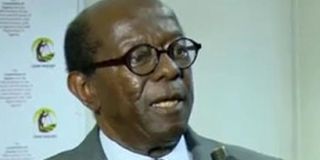Land amendment Bill before Parliament unconstitutional

Peter Mulira
What you need to know:
The purpose of the Bill is itself unclear since the present laws allow the government to do exactly what the Bill seeks to achieve. Section 5(b) of the Land Acquisition Act provides, “Where a person awarded compensation under this section refuses to accept payment, the High Court on the application of the Attorney General, may order for payment to be made into court on such conditions as it thinks appropriate.”
The Bill before Parliament seeking to amend the constitution to enable the central government or local government to compulsorily acquire land prior to payment of compensation is itself unconstitutional on many grounds.
Article 26 of the Constitution permits the government to acquire land for public use or in the interests of defence, public safety, public order, public morality or public health on condition that prompt payment of fair and adequate compensation prior to acquisition of the property and a right of access to court of law by the affected persons is made. The proposal to add sub-article (c) will offend what lawyers know as the ejusdem generis (of the same category) rule and will be inadmissible in a court of law.
The purpose of the Bill is itself unclear since the present laws allow the government to do exactly what the Bill seeks to achieve. Section 5(b) of the Land Acquisition Act provides, “Where a person awarded compensation under this section refuses to accept payment, the High Court on the application of the Attorney General, may order for payment to be made into court on such conditions as it thinks appropriate.”
The Bill seeks to remove the necessity for the Attorney General to make an application to court and to oust the court’s jurisdiction to make orders in the matter which will raise issues of arbitrariness contrary to other provisions of the Constitution.
The governments justifies the Bill on the ground that it will resolve the current problem of the delayed implementation of government infrastructure and investment projects arising out of the compulsory acquisition process.
However, this cannot be correct in light of section 7(2) of the Land Acquisition Act, which provides that “Where the assessment officer takes possession of the land (a) the land shall immediately by operation of law vest in the Uganda Land Commission free from all encumbrances and (b) the estate and interest of every person having an interest in the land immediately before the land so vested shall be deemed to have been converted into a claim for compensation under this Act.”
The power for governments to acquire public property for ends of public utility derives from the doctrine of eminent domain, which was developed by a Dutch jurist in 1625 and is based on two principles, namely that private ends must give way to public good, and secondly, that the State must make good the loss to people who lose their property. In determining the loss for a particular property, the practice of all courts world over is generally to recognise three approaches, namely the market approach, the cost approach and the income approach.
Under the market approach, the value of the property to be acquired is based on recent sales of comparable nearby properties. Based on these sales, the valuer forms an opinion as to price the property will fetch on the open market. The cost approach looks at how much it would cost to replace the land and existing structures after factoring in depreciation. The income approach considers the investment value of the property - that is how much one would pay at the moment of valuation in light of the property’s potential. The government wants to throw overboard all these international norms and instead just set for the owner the price it wants to pay.
The rumours circulating within the legal circles claim that the amendment is targeting certain properties which have been grabbed by big people for which they cannot get good title under the ordinary laws of the land. In particular the Bill targets Lubpwa Estate belonging to descendants of Prince Yusufu Ssuuna.
Mr Mulira is a lawyer, [email protected]




